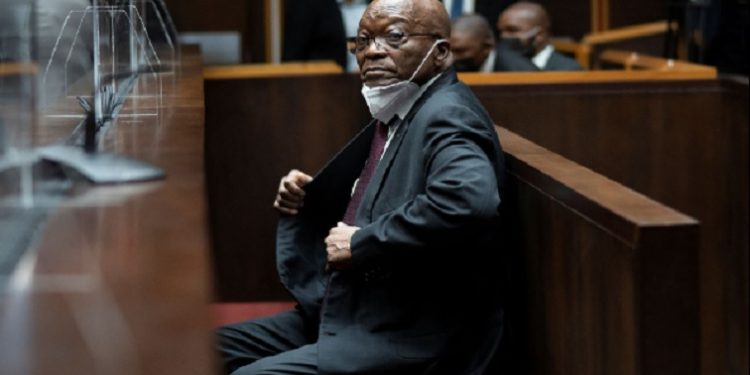The powers of the Correctional Services Commissioner will come under the spotlight in the Supreme Court of Appeal in Bloemfontein on Monday.
Former President Jacob Zuma and the Department of Correctional Services are challenging the High Court judgment which declared Zuma’s release on medical parole, unlawful.
In its judgment, the High Court stated that the matter raised important legal issues, the nature of the power to consider and determine applications for medical parole, and the role of the Medical Parole Advisory Board.
Former President Jacob Zuma was sentenced to 15 months’ imprisonment for contempt of court for failing to obey an earlier order of the Constitutional Court, requiring him to appear before the Commission of Inquiry into Allegations of State Capture.
Former Correctional Services Commissioner, Arthur Fraser, released Zuma after serving less than two months of his sentence, against the recommendation of the Medical Parole Advisory Board.
AfriForum Head of Policy and Action, Ernst Roets insists that the requirements for medical parole were not compiled with:
Legal expert, Machini Motloung says the appeal is premised on the interpretation of the Correctional Services Act.
“For the person to qualify to be released on medical parole, there are three requirements that should be met, and these requirements are saintly packaged in section 79 of the Correctional Services Act. And among others, is one that the applicant for consideration of the medical parole must be terminally ill or physically incapacitated.”
Former Correctional Services Commissioner, Arthur Fraser argued that Zuma suffered from multiple comorbidities, and that Correctional Services could not offer the specialised treatment he required.
Legal expert, Sekonyela Moeketsi says, “Section 79 requires that the person should be terminally ill. So, if you apply section 79 there maybe a different finding because now the terminally ill may not apply in terms of what seems to be in the medical report, but section 75 grants the national commissioner those powers. I think that’s where the difference is.”
In papers before the SCA, Zuma argues that the former Correctional Services Commissioner had an obligation to protect him as an inmate.
However, the respondents, the DA and the Helen Suzman Foundation contend that the Medical Parole Advisory Board is the statutory body to recommend whether medical parole is granted or not.






